Feeling ready to get out of debt? If you’ve been trying to pay off your plastic for an eternity or you’re hiding under a pile of unopened bills, chances are you’re feeling burnt out from debt fatigue. This is totally normal.
Paying off debt isn’t just the mathematical equation of reducing balances owed, it’s an emotional process that can lead to feeling overwhelmed by the seeming futility of the debt repayment process. You whack some debt with a few payments and yet the interest just keeps piling up. So yeah, you feel debt fatigue. Gotcha.
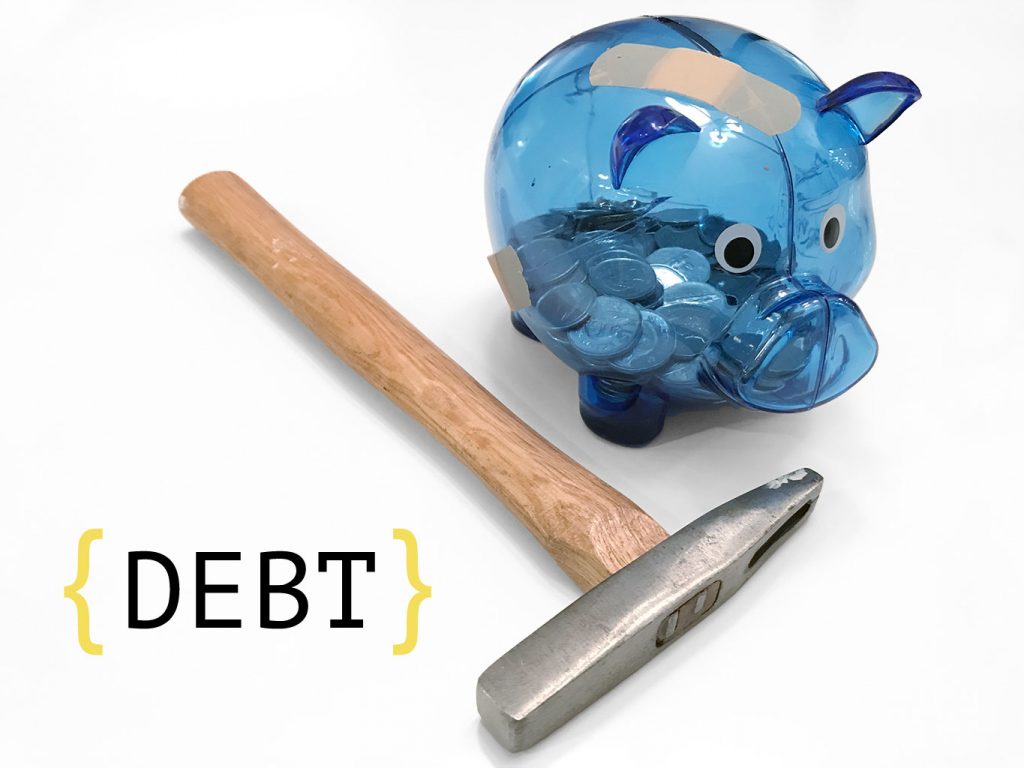
I looked up some recent debt numbers, so I’m feeling you. The average consumer debt (excluding mortgages) is $22,800 in Canada, while those persistent Home Equity Lines of Credit (HELOCs) — which never seem to get paid off — hit an average of $65,000 across Canada.
With several interest rate hikes in the books and more likely in the future, it’s time to deal with all these feels and fatigues and FINALLY reassess your payoff plan. (Yes, you can do this!)
I spoke with licensed insolvency trustee and author Doug Hoyes, of Hoyes, Michalos & Associates Inc., for advice on fighting debt fatigue and ways to get out of debt.
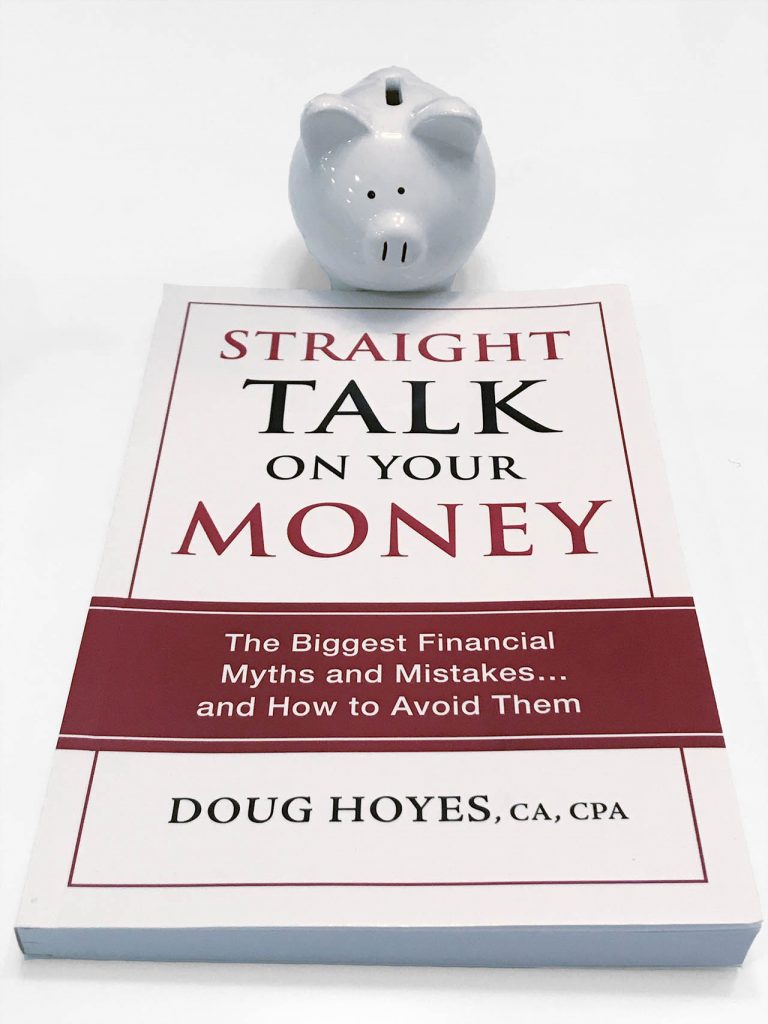
His book, Straight Talk on Your Money: The Biggest Financial Myths and Mistakes, and How to Avoid Them debunks conventional “expert” advice and tells ya why certain rules of thumb are dumb. Oh, and I might be mentioned on a page or two. 🙂
Here’s Doug’s advice…
1. List your creditors: Who do you owe money?
The first step in dealing with debt is to stop hiding from it. It’s critically important to start by listing all your creditors, amounts owed, interest rates, and the payment terms, said Hoyes.
“I have people come in all the time with a stack of mail that they haven’t opened. If you actually want to start reducing your debt, you’ve got to know what the current situation is,” he said. “If you’ve got more debt than you can handle, it becomes so overwhelming that you ignore it.”
Related: Download my free Debt Reduction Spreadsheet to help you list your creditors and test different repayment strategies.
2. To Get Out of Debt: Stop the bleeding
Using a line of credit to pay down your credit cards may seem like a quick solution to being short one month, but over the longer term you’re missing the point of repayment.
“To get out of debt, stop getting into more debt. Stop using your credit cards, stop drawing on your line of credit, because you’re just making it worse and worse.”
3. Make a plan
A big mistake often made by those overwhelmed with debt is not having a plan. Rank your debt by interest rate and pay at least the minimum balance required to stay on your creditors’ good side. But always aim to pay more to dig into the principal.
“You should start with knocking off the high interest rate debts first,” said Hoyes. “I get the psychological benefit of clearing stuff off the deck, so if it’s a really tiny [debt], fine. But do something because inaction isn’t going to work.”
Related: What order should I pay off my credit cards? — yep, this helps!
A good plan should include a projected debt-free day. Take the amount you owe and divide your payments roughly into months, marking them in your calendar.
4. Look past monthly payments
Creditors want you to focus on small monthly payments rather than opening your eyes to the huge cost of interest compounded over time – that’s how they make money! This is a big mistake, said Hoyes.
“We take a very short-term view of things and this gets us into trouble because the interest keeps piling up. Take a step back and look at the big picture.”
Related: Are you paying just the minimum balance on your credit card? — my interview on CBC News reveals the pitfalls.
5. Build a support network
Friends of a feather tend to spend together, so it’s wise to flock with friends who are supportive of your plan to become debt-free.
“If all of your friends are racking up their credit cards, then it’s hard to be the only person who’s not racking up huge debt. So hang out with people who like to do things that don’t cost a lot of money. Look for positive influences.”
Yes, learn to surround yourself with excellence.
6. Know when you’re in too deep
Job loss, illness, and even divorce can all lead to income challenges that make debt repayment difficult. If you’re buried in calls from collection agents then you’re in too deep, said Hoyes.
“If you are in a situation where you just got more debt than you can handle, then reach out for help. You do that in every other area of your life – you don’t let medical problems fester forever. You reach out for help, and it’s the same with debt.”
With a plan in place, you’re on the path to becoming debt free.
Love love love,
Kerry
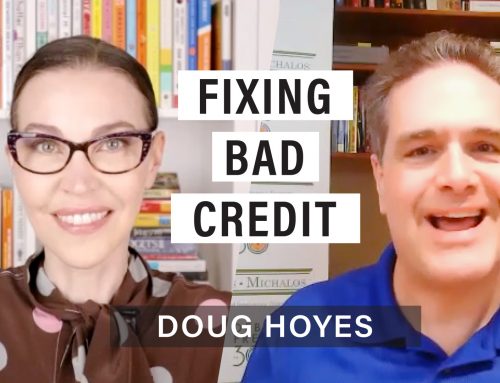
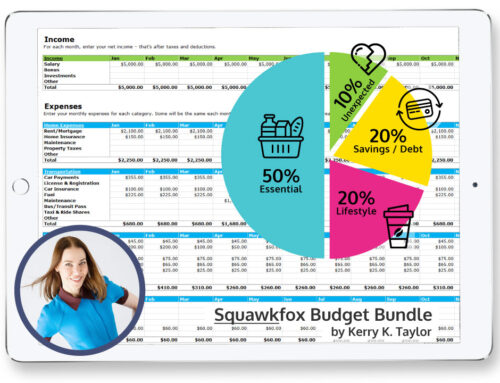
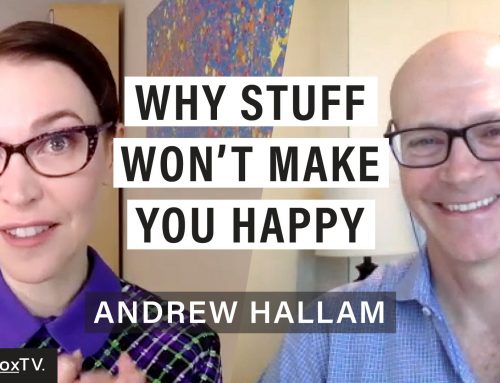

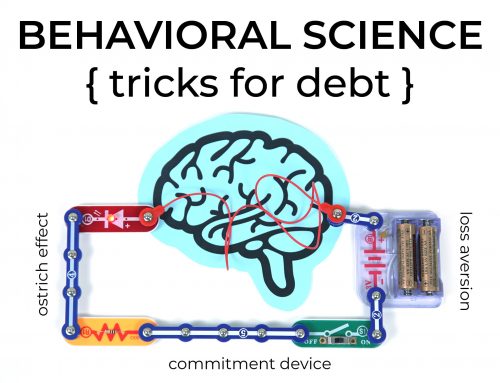
1 2 3 4 4 6 Sorry – I’m a numbers girl . . .
Fixed! I guess #4 was so good it got double billing. 🙂
There are two items that are numbered 4.
You might want to fix this when you get a minute.
Hi Linda, It’s fixed! Thank you!
Super article. I completely agree that not being blind to your debts and knowing all the details. Understanding where you stand in relation to your debt including details like interest rates and payment schedules is vital to getting ahead of your debt and looking beyond the month-to-month view.
I think one of the most invaluable bits of advice in the article is to form a strong support network. If you are surrounded by like-minded folks who are also working hard to pay down all their debts and cross that debt-free finish line, then you are more likely to achieve your goals. I know, for me personally, I really got serious when some of my friends paid off all their student loans and started taking vacations! Like, I want to be able to go on vacation carefree!